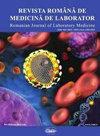内皮祖细胞(EPCs)来源的外泌体miR-30d-5p通过影响巨噬细胞的M1/M2极化抑制高糖受损成纤维细胞的炎症反应
IF 0.5
4区 医学
Q4 MEDICINE, RESEARCH & EXPERIMENTAL
引用次数: 1
摘要
背景:糖尿病是一种常见的慢性疾病,给家庭和社会带来了巨大的负担。糖尿病的治疗一直是一个热点。本研究旨在探讨miR-30d-5pon对高糖受损人瘢痕疙瘩成纤维细胞(HKF)炎症的影响及其机制。方法:采用生物信息学方法预测不同表达的mirna。透射电镜观察外泌体。外泌体颗粒大小用NanoSight测量。Western Blot检测CD81、CD63、CD9、Calnexin的表达。采用QRT-PCR检测miR-30d-5p、IL-1β、TNF-α、VEGF、FGF21、NRF2、HO-1的表达。ELISA法检测大鼠血清IL-1β、TNF-α、IL-6、IL-10、TGF-β水平。流式细胞术检测细胞凋亡及CD86、CD206阳性细胞。结果:Tori方能促进内皮祖细胞外泌体的分泌。EPCs外泌体和miR-30d-5p可刺激高糖损伤的HKF增殖和IL-10、TGF-β的表达。MiR-30d-5p抑制M1巨噬细胞的增殖及IL-1β、TNF-α的表达。还能促进M2巨噬细胞的增殖和CCL17、CCL22的表达。此外,miR-30d-5p刺激VEGF、FGF21、NRF2、HO-1的表达,抑制IL-1β、TNF-α、IL-6的表达。MiR-30d-5p也抑制了受损HKF的凋亡。结论:本研究证实miR-30d-5p可促进M1/M2极化,抑制HKF受损的炎症反应,为糖尿病的治疗提供一定的思路和方向。本文章由计算机程序翻译,如有差异,请以英文原文为准。
Endothelial progenitor cell (EPCs)-derived exosomal miR-30d-5p inhibits the inflammatory response of high glucose-impaired fibroblasts by affecting the M1/M2 polarization of macrophages
Abstract Background: Diabetes is a common chronic disease which has caused a great burden on families and society. The treatment of diabetes has always been a hotspot. This study aimed to explore the effect and mechanism of miR-30d-5pon inflammation of high glucose-impaired human keloid fibroblasts (HKF). Methods: Differently-expressed miRNAs were predicted by bioinformatics methods. Exosomes were observed by transmission electron microscope. Exosome particle sizes were measured by NanoSight. Western Blot was used to detect the expression of CD81, CD63, CD9, and Calnexin. QRT-PCR was used to detect the expression of miR-30d-5p, IL-1β, TNF-α, VEGF, FGF21, NRF2, and HO-1. The levels of IL-1β, TNF-α, IL-6, IL-10, and TGF-β were determined by ELISA. Cell apoptosis and CD86, CD206 positive cells were detected by flow cytometry. Results: Tori formula could promote the secretion of endothelial progenitor cell (EPCs) exosomes. EPCs exosomes and miR-30d-5p could stimulate the proliferation of HKF impaired by high glucose and the expression of IL-10 and TGF-β. MiR-30d-5p inhibited the proliferation of M1 macrophages and the expression of IL-1β and TNF-α. It could also promote the proliferation of M2 macrophages and the expression of CCL17 and CCL22. Moreover, miR-30d-5p stimulated the expression of VEGF, FGF21, NRF2, and HO-1, as well as suppressed the expression of IL-1β, TNF-α, and IL-6. MiR-30d-5p also restrained the apoptosis of impaired HKF. Conclusion: This study confirmed that miR-30d-5p could promote the M1/M2 polarization and inhibit the inflammatory response of impaired HKF, which provided a certain idea and direction for treating diabetes.
求助全文
通过发布文献求助,成功后即可免费获取论文全文。
去求助
来源期刊

Revista Romana De Medicina De Laborator
MEDICINE, RESEARCH & EXPERIMENTAL-
CiteScore
0.31
自引率
20.00%
发文量
43
审稿时长
>12 weeks
期刊介绍:
The aim of the journal is to publish new information that would lead to a better understanding of biological mechanisms of production of human diseases, their prevention and diagnosis as early as possible and to monitor therapy and the development of the health of patients
 求助内容:
求助内容: 应助结果提醒方式:
应助结果提醒方式:


